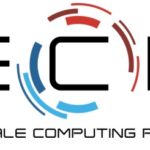SANTA CLARA, Calif. — June 1, 2022 — AMD today announced the expansion of its High Performance Compute (HPC) Fund with the addition of 7 petaflops of computing power to assist global researchers working to solve the most demanding challenges. AMD also announced that the AMD HPC Fund will now integrate Xilinx Heterogeneous Accelerated Compute Clusters (HACC) program, providing […]
DOE’s Office of Science Graduate Student Research Program Selects 80 U.S. Graduate Students
May 3, 2022 — The Department of Energy’s (DOE’s) Office of Science has selected 80 graduate students representing 27 states for the Office of Science Graduate Student Research (SCGSR) program’s 2021 Solicitation 2 cycle. Through world-class training and access to state-of-the-art facilities and resources at DOE national laboratories, SCGSR prepares graduate students to enter jobs […]
Proposals Open to Research Community for ALCF AI Testbed’s Cerebras and SambaNova Systems
Proposals are now being accepted by the Argonne Leadership Computing Facility for access to its AI Testbed, a collection of advanced artificial intelligence accelerators available for science. Researchers interested in using the AI Testbed’s Cerebras CS-2 and SambaNova DataScale systems can submit project proposals via the ALCF’s Director’s Discretionary program. Access to additional testbed resources, including Graphcore, Groq, and Habana accelerators, will be […]
Dell Technologies Interview: Univ. of Liverpool’s Hybrid HPC Strategy Boosts Scientific Computing with a Burst
[SPONSORED CONTENT] In a recent Dell Technologies interview on this site, we talkied about HPC-as-a-Service with R Systems, provider HPC-on-demand resources and technical expertise in partnership with Dell HPC Cloud Services. Now, in this interview, we have a variant within this HPC segment: bursting to the cloud when an on-premises cluster needs a resource boost. Faced with this situation was the University of Liverpool’s Advanced Research Computing within the Computer Services Department. The group, led by Cliff Addison, uses the Dell-based “Barkla” Linux cluster for its scientific computing needs. For times when the group’s needs overtax Barkla, the university worked with Dell Technologies and UK-based Alces Flight, which designs and builds HPC environments for scientists, engineers and researchers. UK-based Alces and Dell engineered a burst capability to Amazon Web Services, placing priority on creating a seamless environment easily adopted and accessed by Advanced Research Computing scientists.
Faced with this need was the University of Liverpool’s Advanced Research Computing within the University’s Computer Services Department. The group, led by Cliff Addison, uses the Dell-based “Barkla” Linux cluster for its scientific computing needs. For times when the group’s needs overtax Barkla’s resources, the university worked with Dell Technologies and UK-based Alces Flight, which designs and builds HPC environments for scientists, engineers and researchers. UK-based Alces and Dell engineered a burst capability to Amazon Web Services, placing priority on creating a seamless environment easily adopted and accessed by Advanced Research Computing scientists….
DOE: $40M Funding Opportunity for Mathematical Multifaceted Capability Centers
April 15, 2022 — Today, the U.S. Department of Energy (DOE) announced $40 million for fundamental mathematics research on problems of interest to the DOE that require the integration of multiple mathematical topic areas. The Mathematical Multifaceted Integrated Capability Centers (MMICCs) supported by this funding opportunity will enable five-year, multi-institutional collaborations for cross-cutting mathematics. Collaborative applications […]
DOE Announces $1M for Research on Medical Isotopes
April 11, 2022 — Today, the U.S. Department of Energy (DOE) announced $1 million in funding for three awards to advance research and development (R&D) to translate newly developed radioisotopes into evaluation for potential use in preclinical and clinical trials. This funding is part of a key federal program that produces critical isotopes otherwise unavailable or in […]
HPE: New Cluster at City University of Hong Kong Delivers 10X Speed Boost for HPC, AI
HONG KONG – April 6, 2022 – Hewlett Packard Enterprise (NYSE: HPE) today announced that it has built a new high performance computing (HPC) cluster for the City University of Hong Kong (CityU) for scientific research and report the HPC cluster “is a significant performance upgrade to CityU’s previous HPC resources, delivering nearly 10 times […]
Exascale Computing Project Releases New Version of Extreme-Scale HPC Scientific Software Stack
The Extreme-scale Scientific Software Stack (E4S) high-performance computing (HPC) software ecosystem—an ongoing broad collection of software capabilities continually developed to address emerging scientific needs for the US Department of Energy community—recently released version 22.02. E4S, which began in the fall of 2018, is aimed at accelerating the development, deployment, and use of HPC software, thereby […]
NSF: Goodbye XSEDE, Hello ACCESS
The National Science Foundation today issued a statement about the ending of the XSEDE (Extreme Science and Engineering Discovery Environment) project this coming August 31, giving way to Advanced Cyberinfrastructure Coordination Ecosystem: Services & Support (ACCESS), which will launch on September 1. NSF said that while access to XSEDE-allocated resources will continue under the ACCESS […]
DOE: $9.25M for Research through Advanced Computing (SciDAC) Partnership in Nuclear Energy
The U.S. Department of Energy (DOE) has announced $9.25 million for research in the behavior and properties of structural materials under molten salt reactor conditions, via collaborations that enable effective use of DOE’s high performance computers. Scientific Discovery through Advanced Computing (SciDAC) brings together experts in key areas of science and energy research with experts […]









